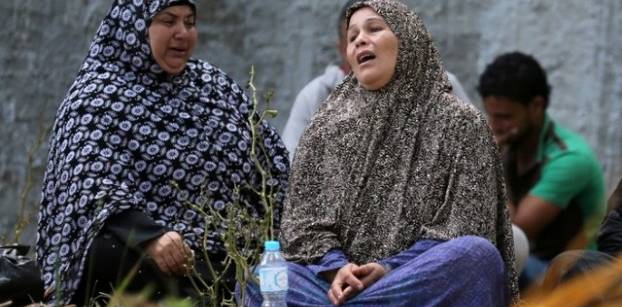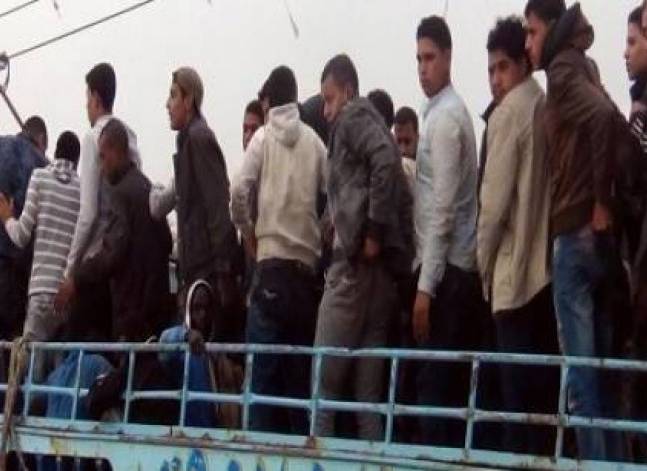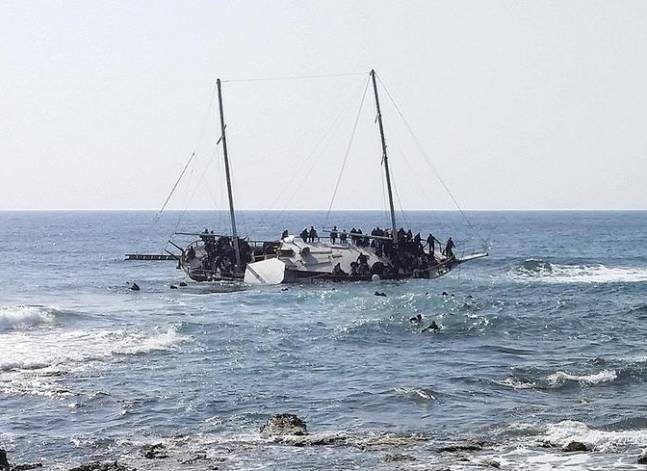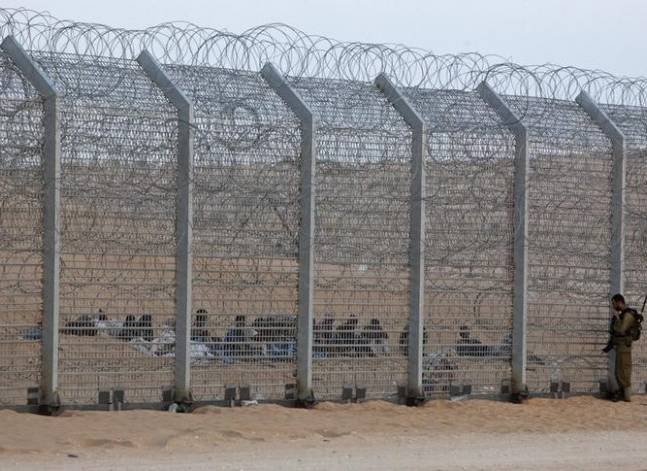Latest NEWS
- Aswat Masriya, the last word
- Roundup of Egypt's press headlines on March 15, 2017
- Roundup of Egypt's press headlines on March 14, 2017
- Former Egyptian President Hosni Mubarak to be released: lawyer
- Roundup of Egypt's press headlines on March 13, 2017
- Egypt's capital set to grow by half a million in 2017
- Egypt's wheat reserves to double with start of harvest -supply min
- Roundup of Egypt's press headlines on March 12, 2017
Victims of Rashid boat tragedy blamed for their fate
CAIRO, Sept 25 (Aswat Masriya) – Instead of being mourned, the hundreds of migrants who lost their lives in the capsized boat tragedy are the target of scrutiny and attacks, as they are blamed for the own demise.
Over 160 people were killed after a boat carrying 600 migrants capsized off the coast of the Mediterranean on Wednesday in Burg Rashid, a village in the Northern Beheira province.
Their reasons for seeking a better life abroad were questioned by government officials, media personalities and social media users alike.
“Egypt is full of jobs in the private sector and it needs its people to build it rather than migrate. I want to tell [the youth] that we all started small, I personally I used to get 50 EGP a month on my first job,” Mohamed Saafan, the Minister of Manpower said in a phone in on a talk show on al-Nahar al-Youm channel on Saturday.
The Cabinet spokesperson, Hussam al-Qaweesh, offered his condolences in a phone call to another talk show on CBC channel, but dismissed the idea that economic reasons are what drive people to leave.
“Illegal immigration requires a large sum of money, and I see that with that sum any citizen can easily start a project in his village. This can offer him a good income and save him from participating in these smuggling operations,” he said.
Mohamed Kashef, a researcher on migrant movements at the Egyptian Initiative for Personal Rights, explained that the trend of blaming the victim has existed in Egyptian society for a while, at least since 2011.
“Usually with various tragic incidents people pose the question, what brought them here, or why would they go there?” he said, citing how this rhetoric was used in other incidents of mass violence and crackdown.
Other public figures and social media users echoed the rhetoric that sees the victims as deserving of their fate, or as having brought it upon themselves.
“We mourn for victims of illegal migration and for their families’ pain, but our anger towards them and their families is greater,” Nabil el-Helfawy, a prominent actor, wrote on his Twitter account.
Talk show host Ahmed Moussa explained that young men go to Europe aspiring for job opportunities, and will often sell their assets to be able to afford the trip.
“But let’s admit there are job opportunities in the country,” Moussa said, adding that the president has allocated 200 billion EGP for youth projects.
This discourse, Kashef points out, ends up highly exaggerating how much money these migrants actually own and how much it costs to make the trip. The trip can cost anywhere between 18,000 EGP and 30,000 EGP, but the sum is usually paid in installments after the person arrives to the other side of the Mediterranean, he explains.
“If these migrants were really so privileged, they would have gotten a bank statement and applied for a visa with it to any state abroad. They would not have had to go through all of this,” Kashef argues.
He points out that those who end up blaming the victim usually belong to the higher or middle classes, and they are not in the same position as the migrants, "who are the most marginalized classes.”
“So they have no idea what life actually is for them," he says, "This kind of tone is coming from someone who does not understand.”
Local newspaper Youm7 published an article on Sunday citing seven facts about the crimes of illegal migration.
The article claimed that “terrorist groups exploit some of the young migrants to assign them to commit acts of sabotage and to join terrorist camps.”
Youm7 also argued that the punishments imposed for illegal immigration are futile, “and the young men who try to illegally migrate are seen as victims so we need a legislative revolution from the parliament and harsher penalties.”
While Egyptian media tends to call migrants “illegal,” or “illegitimate," Kashef argues that most international organisations have shifted to calling them “irregular migrants” instead.
“That way we are saying that traveling is illegal when in fact it is a human right. It is just alternative traveling, and by using this terminology we imply that what they were doing was a criminal act, when in fact they were the victims.”
Egyptian security forces often announce thwarting irregular migration attempts, involving hundreds of people.
According to the Cabinet’s figures, Egypt foiled 110 irregular migration attempts this year and the Interior Minister recorded over 135 cases that involve “illegal migration.”
However, Kashef sees two things as particularly shocking in this incident.
The first, he says, "is that for the first time in a long time entire Egyptian families were leaving, they weren’t just sending their sons to be able to have a better life here, they were escaping their entire lives here."
The second, is that this incident happened on domestic waters, "usually when boats drown this happens in the middle of the Mediterranean and not so close to the shores."
The case, he explains, is even worse for Sudanese and other African migrants who are locked in the refrigerators of the ships, where the fishermen keep their fish.
Social media users have called the migrants “lazy," and "barbarians," and claimed that they “don’t want to work, and don't have any values.”
“You should die in the middle of the sea and not get even get buried in Egypt. At least the congestion will ease a bit and the lazy ones that hurt the economy will leave more space for others,” one user said.
On the other hand, Kashef, who has been researching the Rashid tragedy said that one of the migrants explained his choices, saying "nobody throws themselves at death unless they’re escaping another death."














